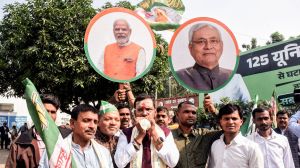Focusing on making UPI, RuPay truly global: Shaktikanta Das
Last year in February, UPI, the country’s real-time retail payment system, and its equivalent network in Singapore, PayNow, were integrated for enabling faster remittances between the citizens of the two countries at a highly competitive rate.
 Shaktikanta Das, Governor, Reserve Bank of India. (File Photo)
Shaktikanta Das, Governor, Reserve Bank of India. (File Photo)Reserve Bank of India (RBI) Governor Shaktikanta Das on Wednesday said the central bank is focusing on making Unified Payments Interface (UPI) and RuPay, the card payments network of the country, “truly global”.
“The deployment of UPI-like infrastructure in foreign jurisdictions, facilitating QR (quick-response) code-based payment acceptance through UPI apps at international merchant locations, and interlinking UPI with Fast Payment Systems (FPS) of other countries for crossborder remittances are on top of our agenda,” Das said at the Global Fintech Festival.
Notable progress in this direction has already been made in countries like Bhutan, Nepal, Sri Lanka, Singapore, the UAE, Mauritius, Namibia, Peru, France and a few other countries, he said.
Last year in February, UPI, the country’s real-time retail payment system, and its equivalent network in Singapore, PayNow, were integrated for enabling faster remittances between the citizens of the two countries at a highly competitive rate. UPI QR code is accepted in countries like Bhutan, France, Mauritius, Sri Lanka, Nepal, and UAE.
RuPay card’s acceptance spans Nepal, Bhutan, Singapore, Mauritius, and UAE, with cards from these countries also accepted in India. The integration of UPI with FPS in Singapore for peer-to-peer remittances and agreements with regulators in UAE, Nepal, Namibia, and Peru for deploying UPI-like solutions signify the progress made so far in obtaining global financial connectivity.
In 2023, UPI and its equivalent network in Singapore, PayNow, were integrated for enabling faster remittances between citizens of the two countries. UPI QR code is currently accepted in countries like Bhutan, France, Mauritius, Sri Lanka, Nepal, and UAE.
Das said that these endeavours underscore collaborative efforts for adoption of India’s initiatives across the globe.
He highlighted that the country’s CBDC (Central Bank Digital Currency), which is in pilot stage, is another example of possible international co-operation.
The Governor said the RBI is now utilising features like programmability to provide credit or government assistance to landless tenant farmers and carbon credits to farmers through CBDC. Programmability feature of CBDC refers to programming the money by tying the end use.
“While we have successfully demonstrated the interoperability of CBDC with retail fast payment systems like UPI, we continue to gain from our experimentation on off-line solutions,” he said.
The RBI launched pilots for digital rupee in the wholesale in November 2022 and in the retail segment in December 2022. India is among the few countries that has launched CBDC or e-rupee pilots in wholesale and retail segments.


- 01
- 02
- 03
- 04
- 05





























